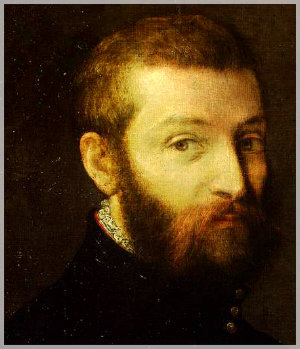Paolo Veronese
1528-1588
Italian Late Renaissance Mannerist Painter
One of the Greatest Painters Of All Time
Artistically and stylistically influenced by the following painters- Michelangelo, Raphael, Andrea del Verrocchio, Mantegna, and Piero della Francesca
Education -
Cause of Death - unknown
technique - oil on linen or oak panel

About Mannerist Painting
Originating in Italy, the term mannerism comes from the Italian 'maniera', which translates to 'style'. Mannerism is an artistic style that was born in the early 1500s. The style originated in Rome and later widened to all of Europe. Mannerists paintings are characterized by elongated limbs, thin aquiline noses, overly stylized figures, undersized heads, electrifying, vibrant colors and elaborately mannered, theatrical compositions. The Mannerists in Italy worked on generous commission for a restricted audience of Vatican powerbrokers and royalty. They painted a wide range of subjects and genres including religious images, mythological subjects and portraiture.
Masters of The Mannerist Style
Require more facts and information about the painter? Poke around every nook and cranny of the known universe for information this subject. Search Here
Do you know something we don't? If you have comment or would like to share an insight regarding Paolo Veronese in Art History, please submit your comment to the editor, via e-mail and if possible site the source. Thank you!
© HistoryofPainters.com If you like this page and wish to share it, you are welcome to link to it, with our thanks.
| links | artist biographies | top 50 painters | art supplies | book store |
| site map | art movements | artist quotations | iconography | 100 greatest paintings |